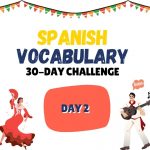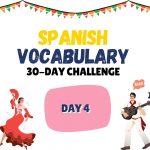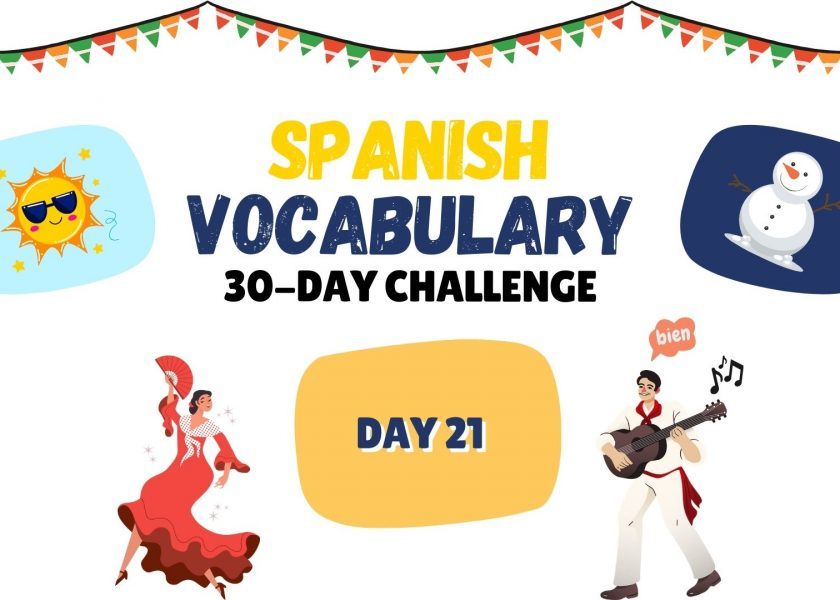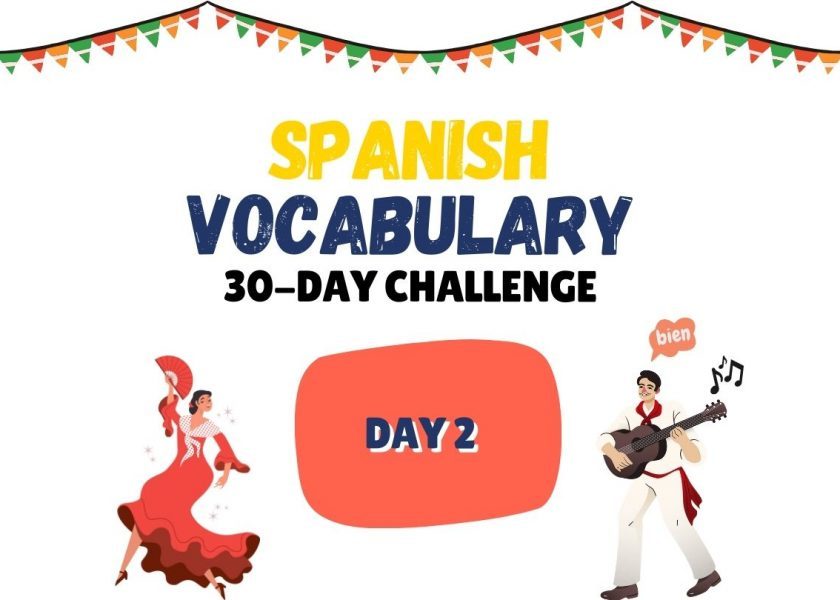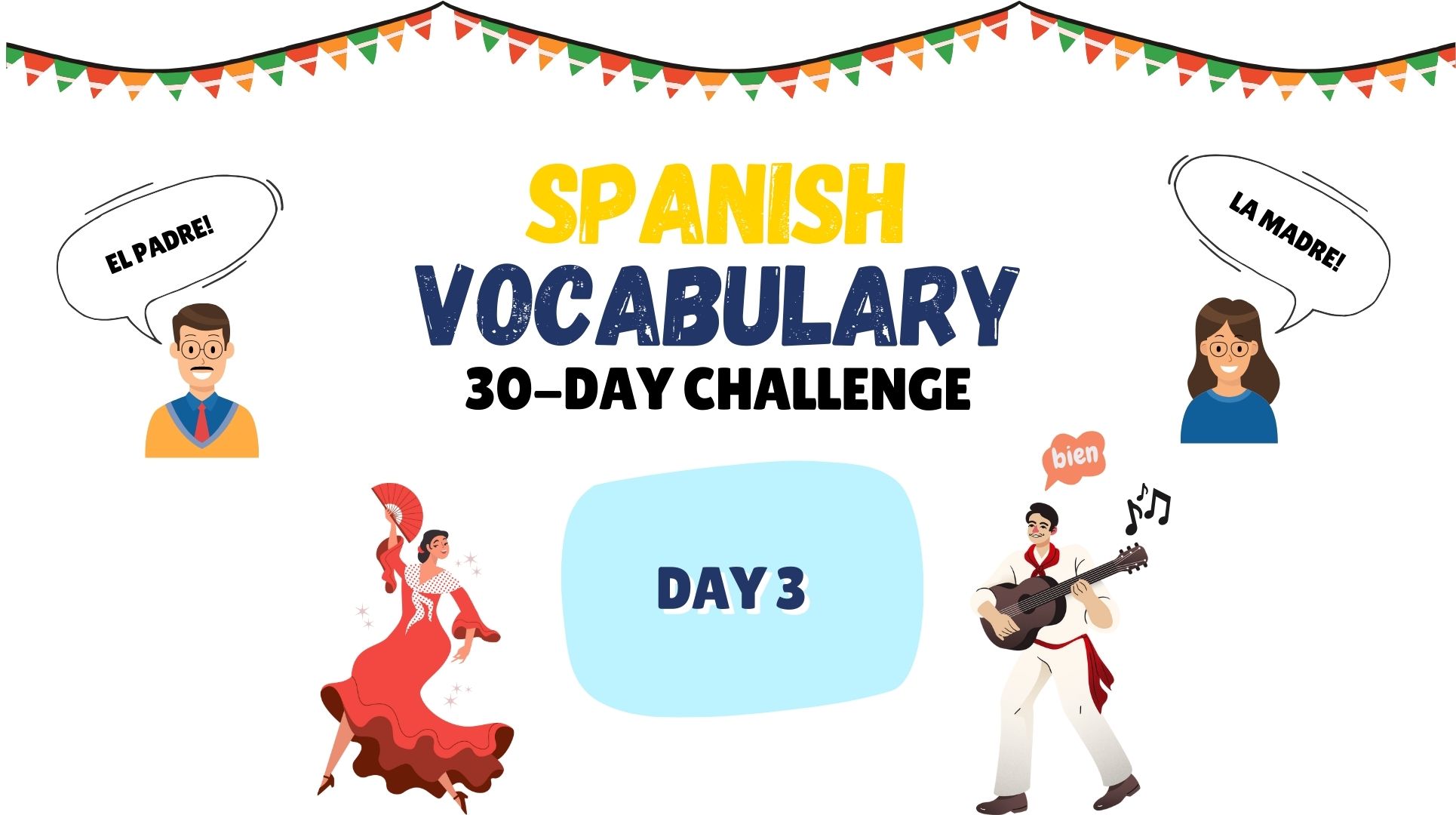
Day 3 of Spanish Vocabulary: Día 3: La Familia (Parte 1)
For today’s lesson, we’re getting familiar with algunos miembros importantes de la familia – some important family members in Spanish. Learning spanish vocabulary related to different family members can be useful when you’re talking about your own or someone else’s relationships.
¡Vamos a empezar! Let’s start!
El padre | Father | El is used for masculine nouns. La is used for feminine nouns. They are definite articles and their meaning in English is ‘The’. While in English, we simply use “The” irrespective of the gender of the noun, in Spanish, we ensure that we use the article based on the gender of the noun! In fact, it is also based on the plurality of the noun! For example, if we want to say The fathers, it would be Los padres. For The mothers, it would be Las madres. We have also added an ‘s’ at the end of the noun to make it plural. While this works with most nouns, it’s better to always double check on how to make a noun plural! |
| La madre laa maadrey | Mother | |
| El hijo eyl ee-kho | Son | |
| La hija laa ee-khaa | Daughter | |
| El hermano eyl eyr-maano | Brother | |
| La hermana laa eyr-maanaa | Sister |
Notes to remember:
- In spanish language, gender matters a lot – make sure to use el/la correctly.
- It’s important to understand that memorizing the gender of all nouns doesn’t happen overnight. When you’re building foreign language vocabulary, you learn more words as you progress. Attempting to memorize the entire spanish dictionary is a futile effort! Instead, memorize in small, relevant chunks.
- When using these words in a sentence, it isn’t necessary to use the word with the article if ‘the’ is not present in it.
Example,
Ella es mi madre.
She is my mother.
See, we don’t have to use it with the article here. But if the sentence is –
La madre está feliz.
The mother is happy.
Here, since we have ‘The’ at the beginning of the sentence, it is fine if we’re using the article!
Now, let’s practice with a simple fill-in-the-blanks:
- Tú tienes dos _________. (You have two brothers.)
- Yo soy _________ de Miguel. (I am Miguel’s daughter.)
- Mis _________ se llaman Juan y Ana. (My parents are named John and Ana.)
- Ella tiene un _________ mayor. (She has an older brother.)
Check your answers:
- hermanos
- hija
- padres – this must have been confusing, but here’s another word. The Spanish word for Parents is Padres.
- hermano
¡Muy bien! Using this family vocabulary, you can now introduce and describe your closest relatives. The familia lessons continue in the next días, so keep practicing estas palabras importantes.

